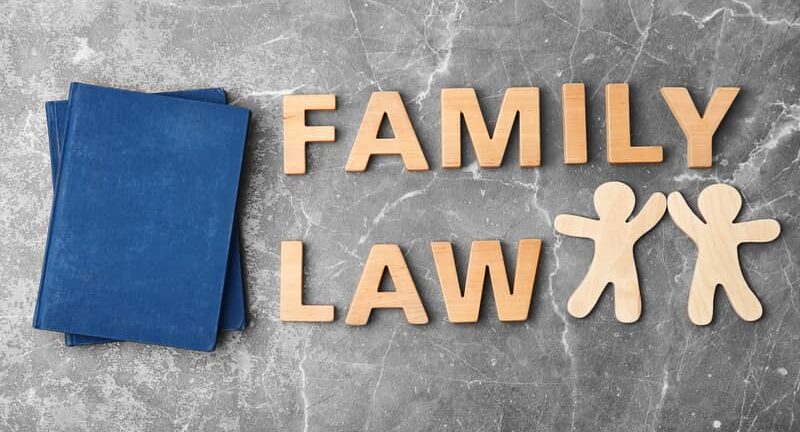
 You can always elect to represent yourself in most legal matters before the Court. In response to the question, “Is a lawyer required for divorce?” the answer is “No.”
You can always elect to represent yourself in most legal matters before the Court. In response to the question, “Is a lawyer required for divorce?” the answer is “No.”
That’s also often true for many other types of legal matters, including traffic tickets, car accidents, and criminal charges.
There are very few instances when a lawyer would be “required,” and even then, as a practical matter, courts rarely demand lawyers get involved.
Our system of justice allows for self-representation.
It is an aspect of the Common Law we adopted (and in part still recognize) as a Brittish Colony.
You may have heard of the legal term for that: Pro Se
From Latin, it roughly means, “for oneself” or “in one’s own behalf.”
Under the NC divorce laws, you may argue for yourself in court. Of course, you can also give yourself a haircut and pull your own teeth if you have a cavity.
There is no law against that.
Arguing a complex legal matter in court can be an overwhelming, if not daunting process.
You could find yourself feeling pretty alone in a crowd, as our court system is often bustling with activity.
While a lawyer is not necessarily required, it is our firm belief that legal representation is a really good idea.
Divorce in North Carolina can be complicated. There are a fair number of moving parts, many of which are interrelated and can easily affect one another. Lawyers aren’t required, but we think it helps to have a divorce lawyer on your side in court – Bill Powers, Charlotte Divorce Lawyer
The “No-Fault” Divorce
Sometimes people use the term, “uncontested divorce,” misunderstanding the meaning relative to the laws specific to each state.
The NC divorce laws are somewhat unique, if not downright unusual in certain circumstances.
That’s nothing to fret about. We believe our laws are fair, reasonable, and just.
The point is, you should not rely on what you think the divorce laws are or what they should be.
What applies in another state may be completely inconsistent with the separation and divorce statutes here.
For example, certain jurisdictions require proof of “fault,” meaning one spouse caused a divorce and/or by their acts, the moving party is entitled to a divorce.
In North Carolina, the fault for divorce is rarely an issue.
Without some pretty unique circumstances, one cannot hold up divorce proceedings, arguing, “There aren’t grounds for divorce.”
If the parties have been legally separated long enough, one party may institute a divorce, even if the other spouse disagrees and wants to stay married.
** Each case is different. There are some instances where the fault may become an issue when divorce is sought due to “grounds.” If you have questions about this or any other legal issue involving your divorce, speak with an experienced divorce lawyer immediately.
Divorce from Bed and Board in North Carolina
Is there such a thing as a “Simple Divorce?”
Frankly, one of the most common things we hear potential clients say is, “It’s a simple divorce. It won’t take much time or effort. We agree about everything.”
With all due respect, it’s our opinion there rarely exists such a thing.
Even in the most modest of financial circumstances, there can and often are disputes about the disposition of assets and perhaps, more importantly, debt.
What you think fair or reasonable or even “obvious” may not necessarily be the case for your spouse.
One would be incredibly remiss in failing to acknowledge a marriage results in, by its very nature, a co-mingling of assets, debts, and legal responsibilities.
If children are involved, issues about custody, visitation, and support are always a possible source of disagreement or dispute.
One of the more common contributing factors to divorce is financial problems.
Even if there are no substantial assets, like a house, cars, or retirement accounts, issues may arise in Equitable Distribution or “ED” in the apportionment and responsibility for the debt in marriage.
As such, prior to doing anything, including separating or having the “I want a divorce conversation,” we think it’s smart to consult with an attorney.
Related Legal Issues – Is a Lawyer Required?
- What is Collaborative Divorce?
- Post Separation Support and Alimony
- Reconciliation
- I Want a Divorce
- What is Alienation of Affection in North Carolina
- Divorce with Kids
- Legal Fees
Divorce Lawyers in Charlotte – Powers Law Firm PA – Bill Powers
We have found good decisions often require good information.
Getting divorced, or even separated, has consequences.
Prior to making a rash decision, even in instances where the spouses wish to work collaboratively with one another, schedule an office visit with a Charlotte Divorce Lawyer.
Find out how much will it cost to get a divorce. Ask, “How much are legal fees?”
It won’t hurt our feelings if all you do is consult with our law firm and decide it’s better to seek counseling and stay married. Hiring a lawyer is not required.
Our law firm is dedicated to trial skills and courtroom advocacy.
Preparation, careful analysis of the NC divorce laws and consideration of the myriad of financial aspects of child custody, post-separation support, alimony, and equitable distribution are merited.
Separating and ending a marriage can take longer than you think.
Indeed, it may be more complicated than getting married in the first place.
We’re here to help explain these and other legal issues relative to your marriage, your financial condition, and your family life, relative to the divorce laws.
Call now to schedule your confidential consultation.
Consultation fees DO APPLY in family law, divorce, and separation issues at our firm.
Related Posts
Equitable Adoption in North Carolina
The doctrine of Equitable Adoption is a judicially created “equitable” remedy...
Charlotte Child Custody and Contempt of Court
The North Carolina Court of Appeals ruled this week on a longstanding Charlotte...

